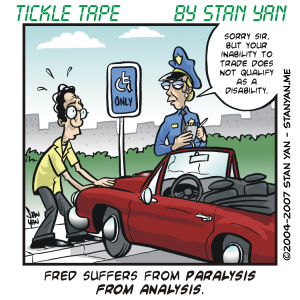Sometimes traders run hot, but sometimes they run cold. The factors that influence this fluctuation in performance are varied. As a trader, you may have a bad day or week. Or market conditions may not be optimal for your style of trading. It’s also possible that your method needs to be re-thought, and it may take time to make minor modifications until you discover the fix. Because your performance is never assured, you must prepare for a worst-case scenario. Many people don’t like thinking about the potential downturns, but it is vital to force yourself to look at what you don’t want to see and take precautions in order to survive the unthinkable. Many seasoned traders argue that money management is vital for success. Here is what some of them told us when we asked them what they thought about money management.
Mark said, “You can have a crummy trading strategy, but if you have good money management, you can make money. If you have poor money management, it doesn’t matter how good the trading strategy is, you’re going to lose in the end.” Chris warns, “You must have a survivability element so that if you literally wished to select stocks by throwing darts at a board, you would continue to survive market to market.”
When asked how he determined the size of his trades, Alex said, “I base it upon the equity in my account, first of all. Also, I look at the volatility of the stock and how much money I want to put at risk on any one position. I won’t risk more than a couple of percent on any position.”
Mike also agrees that money management is important. “You’ve got to consider the commitment size of your capital. What percentage do I commit? At the beginning of the year, I’ll risk maybe two and a half, three per cent. I may have a slew of positions on, but I’ll only risk two and a half to three per cent. I also have a reserve amount. I have war stories, so I keep a reserve as protection.”
Although the specifics of money management can differ across traders, many suggest limiting the amount of capital you risk on a given trade. Many traders simply suggest limiting one’s risk to 1-3%, but there are no hard and fast rules regarding this percentage. But however, you do it, limiting risk helps you survive to changing market conditions or trading strategies that don’t pan out. So follow the advice of seasoned traders: Manage risk. In the big picture, you’ll end up more profitable if you do.


